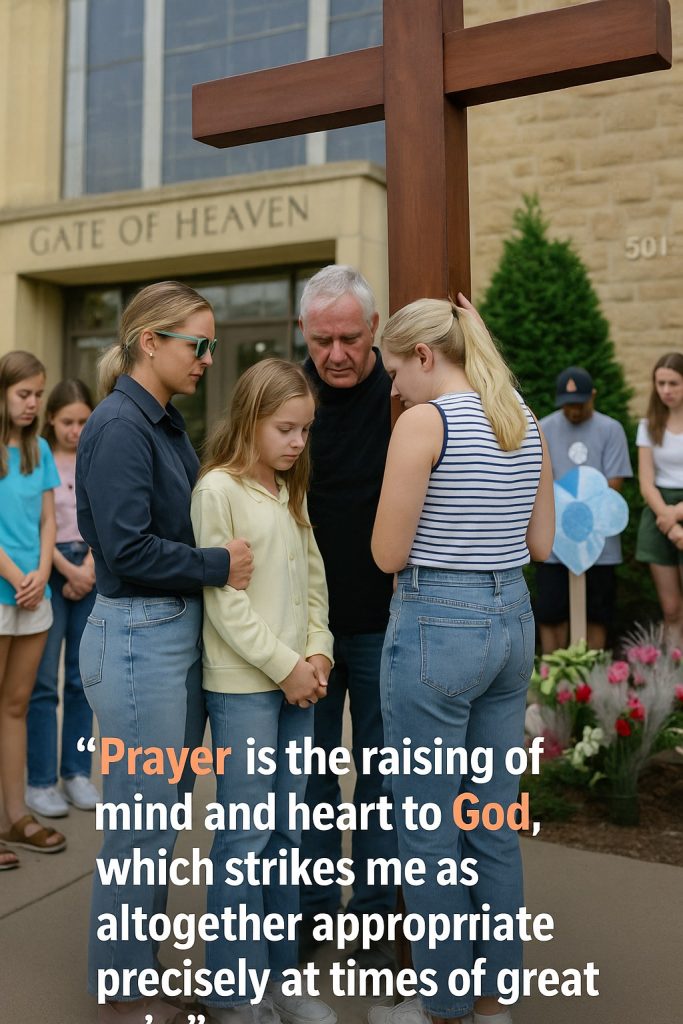In the wake of a devastating shooting at a Catholic school in Minneapolis that claimed multiple lives this week, a sharp public disagreement has emerged between religious and political leaders over the role of prayer in times of tragedy.
Bishop Robert Barron, a prominent Catholic figure and commentator, has strongly criticized Mayor Jacob Frey for what he described as a dismissive attitude toward prayer in response to the deadly incident. Bishop Barron labeled the mayor’s remarks as “completely asinine,” emphasizing that prayer is far from a passive act.
The shooting that occurred at the Gate of Heaven Catholic school — a community deeply shaken by the loss — prompted many citizens and religious leaders alike to turn to prayer. Bishop Barron articulated that prayer is “the raising of the mind and heart to God,” calling it a profoundly appropriate and powerful response during such moments of grief and reflection.
In contrast, Mayor Frey’s comments appeared to question the efficacy of prayer alone as a response to violence, prompting backlash from religious communities who view prayer as a crucial component of healing and action. While the mayor acknowledged the pain felt by the community, his stance on prayer was seen by some as minimizing the spiritual dimension that many rely on to find hope and strength in the aftermath of tragedy.
Bishop Barron urged a broader understanding of prayer not merely as a contemplative or passive exercise but as a profound call to action and moral reflection. “Prayer galvanizes us — it is a call to awaken our conscience, to seek justice, to pursue peace,” he stated, making clear that the spiritual practice and concrete steps toward societal betterment are deeply intertwined.
The dialogue surrounding the incident has reignited discussions about how communities respond to acts of violence — whether through spiritual unity, policy reform, or a combination of both. The Catholic school shooting has spotlighted the urgent need for comprehensive approaches that address both immediate emotional recovery and long-term prevention strategies.
Community members continue to gather, many holding vigils and prayer services to honor the victims and support survivors. The tension between secular leadership and religious perspectives on prayer reflects a broader cultural conversation about the role of faith in public life, especially in moments of profound crisis.
As Minneapolis mourns, Bishop Barron’s call serves as a reminder that prayer, while deeply personal, also functions as a collective act of engagement and commitment to healing and justice. His criticism highlights a crucial debate: balancing respect for spiritual responses with pragmatic efforts to prevent further tragedies.
The dialogue between Mayor Frey and Bishop Barron underscores the complexity of leading a community through grief, where faith and governance must find ways to coexist and support one another effectively. For many, the power of prayer remains an indispensable source of resilience in the face of unimaginable loss.



